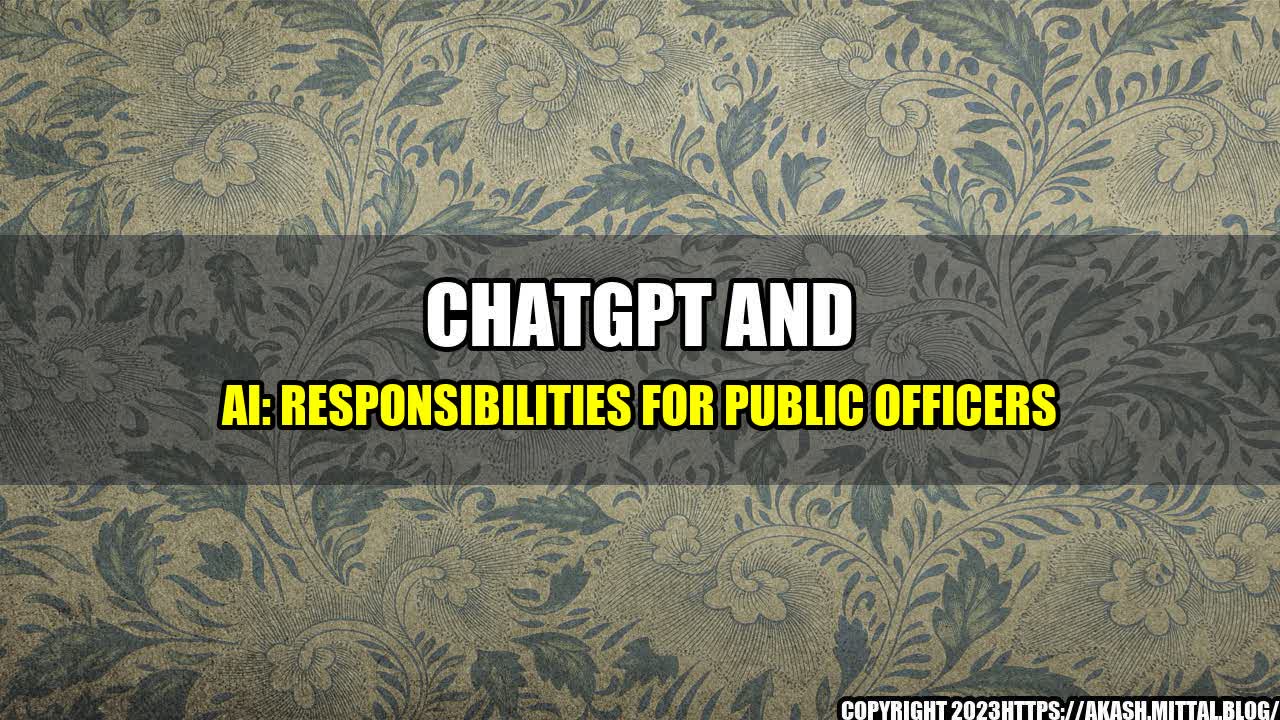
As a public officer, we have a lot of responsibilities that we need to fulfill to serve the public interest. Sometimes, fulfilling those duties requires us to use advanced technology, including ChatGPT and other artificial intelligence tools. While these tools may offer many benefits for optimizing workflows and increasing efficiency, they also come with a significant weight of responsibilities that must be taken seriously. Today, we will delve deeper into the topic of ChatGPT and AI responsibilities in the public sector.
Before we discuss the responsibilities of public officers, let's first understand the benefits AI can bring to the public sector. AI offers a valuable toolset for public officers to make data-driven decisions, automate redundant tasks, and improve service quality. For example, a ChatGPT tool can automate the process of answering frequently asked questions, which can eliminate the burden of responding to the same query repeatedly. This automation can save valuable time and resources that can be used to turn towards other essential tasks or aspects within the organization.
While AI has impressive capabilities that can speed up tedious tasks and reduce the chances of human error, the technology has its inevitable drawbacks. Public officers must be aware of the risks and take adequate measures to ensure accountability and ethical practices while using AI. The following are critical responsibilities to ensure the best outcomes when utilizing AI tools:
In conclusion, ChatGPT, and other AI tools offer fantastic potential for public officers to automate redundant and predictable tasks and make data-driven decisions. While the benefits of AI are plentiful, public officers must not ignore their responsibilities while using AI tools. We must ensure data privacy and security, transparency, and explainability, and accountability for decisions made through AI tools. By taking these responsibilities seriously, we can uphold ethical standards while ensuring that technology is used to serve the public interest.
Curated by Team Akash.Mittal.Blog
Share on Twitter Share on LinkedIn